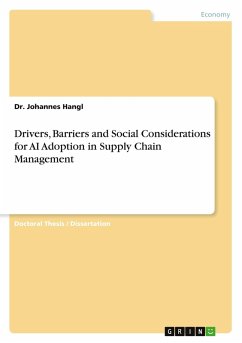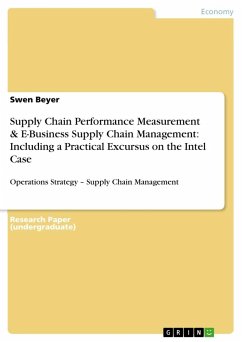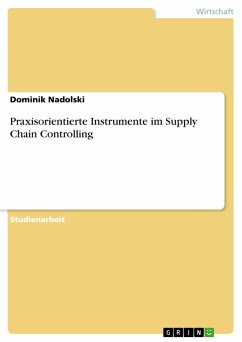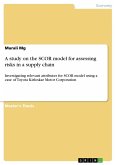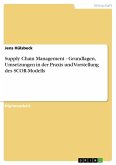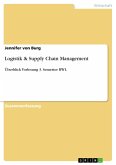Doctoral Thesis / Dissertation from the year 2025 in the subject Business economics - Supply, Production, Logistics, grade: magna cum laude, Mendel University (Business and Economics), language: English, abstract: The dissertation explores the integration of artificial intelligence (AI) with supply chain management (SCM), highlighting both opportunities and challenges. It begins by discussing the current state of AI in SCM, identifying research gaps, and explaining foundational concepts like SCM complexities, the Supply Chain Operational Reference Model (SCOR), and AI algorithms in SCM. Using a structured methodology, the study includes a detailed literature review, survey design, and expert interviews. Key findings reveal that AI adoption in SCM is driven by increased efficiency, improved decision-making, and cost reduction. However, barriers such as data quality issues, resistance to change, and lack of understanding and trust in AI are significant. To overcome these barriers, companies should involve all stakeholders, focus on data quality, and integrate AI solutions with existing processes. The research emphasizes avoiding common mistakes in AI implementation, such as neglecting explainability and transparency, underestimating stakeholder involvement, and rushing into large-scale implementation without pilot projects. It concludes with actionable guidelines for businesses on developing, purchasing, and implementing AI solutions in SCM. These guidelines include prioritizing data quality, enhancing technical expertise, focusing on tangible business benefits, and upholding ethical standards. The dissertation also discusses the implications for academia and industry, acknowledging limitations and suggesting future research directions. It highlights the potential of AI to revolutionize areas like demand forecasting, inventory optimization, and transportation through advanced predictive analytics and integration with technologies like IoT, blockchain, and robotics. The study underscores the importance of ethical AI implementation, transparency, and human-AI collaboration to address SCM challenges effectively.
Hinweis: Dieser Artikel kann nur an eine deutsche Lieferadresse ausgeliefert werden.
Hinweis: Dieser Artikel kann nur an eine deutsche Lieferadresse ausgeliefert werden.

